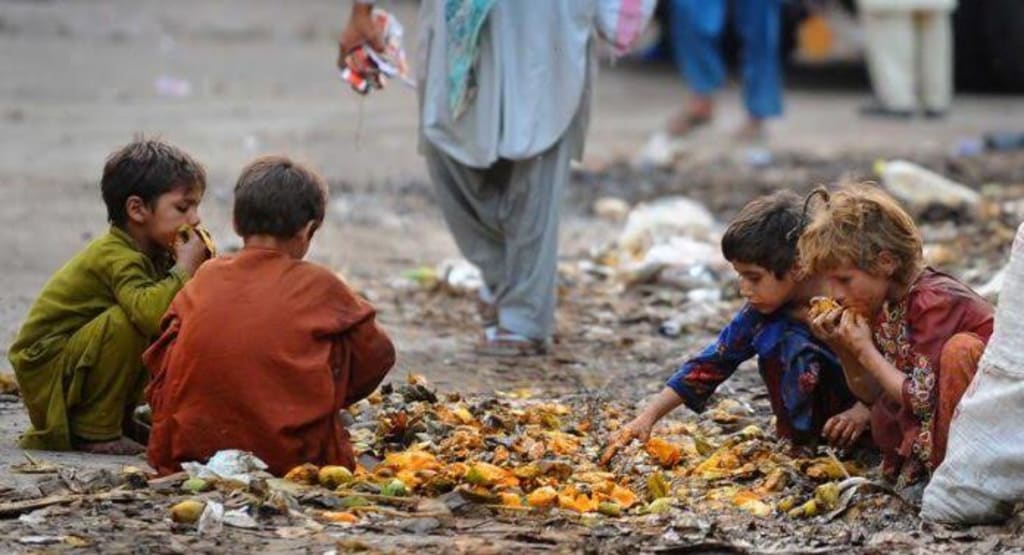
The policies implemented by affluent countries hold significant sway over the trajectory and development of poorer nations. As global interdependence intensifies, the actions and decisions of wealthy nations have far-reaching implications for their less prosperous counterparts. In this article, we delve into the policies of affluent countries and their impact on developing nations, exploring economic, political, and social aspects of this complex relationship.
Economic Policies and Inequalities
Rich countries possess considerable economic power, often shaping global economic systems to their advantage. Their policies, such as trade agreements, foreign direct investment, and aid packages, can have both positive and negative consequences for poorer nations.
Trade policies, for instance, can create opportunities for developing countries to export their goods and participate in global markets. However, the terms of trade agreements are often skewed in favor of richer nations, leading to imbalances and unequal power dynamics. Tariffs, subsidies, and non-tariff barriers imposed by affluent countries can hinder the competitiveness of goods from poorer nations, perpetuating economic disparities.
Foreign direct investment (FDI) can bring capital, technology, and expertise to developing countries, stimulating economic growth. However, it is crucial to ensure that FDI benefits local communities, fosters sustainable development, and promotes fair labor practices. In some cases, multinational corporations from rich nations have been criticized for exploiting natural resources, contributing to environmental degradation, and perpetuating labor abuses in poorer countries.
The provision of foreign aid by wealthy nations can also influence the development trajectory of poorer nations. While aid can provide much-needed resources for infrastructure, education, healthcare, and poverty alleviation, the terms and conditions attached to aid can limit the agency and autonomy of recipient countries. Tied aid, for example, requires countries to use funds to purchase goods or services from the donor country, limiting their ability to make independent decisions in the best interest of their citizens.
Political Influence and Power Dynamics
Rich countries often exert significant political influence on the global stage, shaping policies and agendas that impact developing nations. In international forums and organizations, such as the United Nations and the World Trade Organization, affluent nations hold more power and influence due to their economic and political clout.
Global governance structures often reflect the interests of richer countries, with decision-making processes skewed in their favor. This can lead to the marginalization of poorer nations, limiting their voice and agency in shaping global policies and initiatives. The unequal power dynamics in international relations can hinder the ability of developing nations to assert their needs and priorities, further exacerbating inequalities.
In addition, the policies of wealthy nations can directly impact the political stability of developing countries. Historical examples of interventions and regime changes carried out by powerful countries highlight the extent to which political decisions of affluent nations can shape the destiny of less powerful nations. These actions can have long-lasting consequences, often hindering the political and social progress of developing nations.
Social and Environmental Impact
Policies pursued by affluent countries also have social and environmental ramifications for developing nations. For instance, the demand for cheap labor and resources in wealthier countries can lead to the exploitation of workers and the degradation of natural environments in poorer nations. Sweatshops, hazardous working conditions, and the depletion of natural resources are often associated with the pursuit of profit by multinational corporations headquartered in wealthier countries.
Furthermore, climate change, largely driven by the emissions of industrialized nations, disproportionately affects developing countries. The impact of rising sea levels, extreme weather events, and agricultural disruptions are particularly felt by those with limited resources and vulnerable populations. While efforts are being made to address climate change, wealthier nations must take responsibility for their historical contributions and provide support to poorer nations in adapting to and mitigating the effects of climate change.
Building a Fairer Future
Recognizing the influence of rich countries' policies on poorer nations, it is crucial to foster a more equitable global system. Collaboration, dialogue, and the inclusion of developing nations in decision-making processes are vital for ensuring that policies are fair, balanced, and promote sustainable development.
Wealthier countries should strive to implement policies that support economic empowerment, promote fair trade, and provide opportunities for technological transfer and capacity building in developing nations. Ensuring that foreign aid is untied and respects the agency of recipient countries is essential for fostering long-term development.
Political reforms are needed to democratize global governance structures, amplifying the voices of developing nations. The representation and participation of poorer countries in international organizations should be enhanced, enabling them to shape policies and decisions that affect their future.
In terms of social and environmental impact, wealthier countries must take responsibility for their actions and work towards sustainable practices. This involves reducing carbon emissions, supporting renewable energy initiatives, and providing resources and assistance to developing nations in their efforts to adapt to climate change.
Conclusion
The policies pursued by rich countries have a profound influence on the trajectory of poorer nations. Economic, political, and social decisions made by affluent nations can either perpetuate inequalities or contribute to a fairer and more sustainable global system. By recognizing the implications of their actions and actively working towards inclusive policies and practices, wealthier countries can help bridge the gap and foster a more equitable and prosperous future for all.





Comments
There are no comments for this story
Be the first to respond and start the conversation.